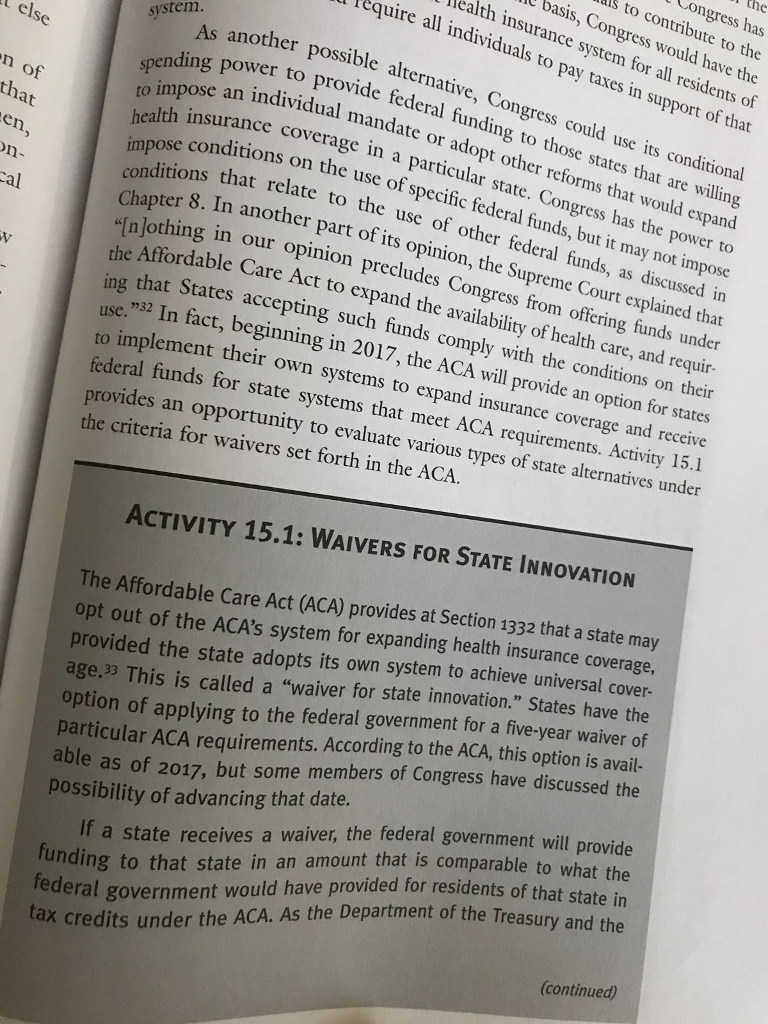
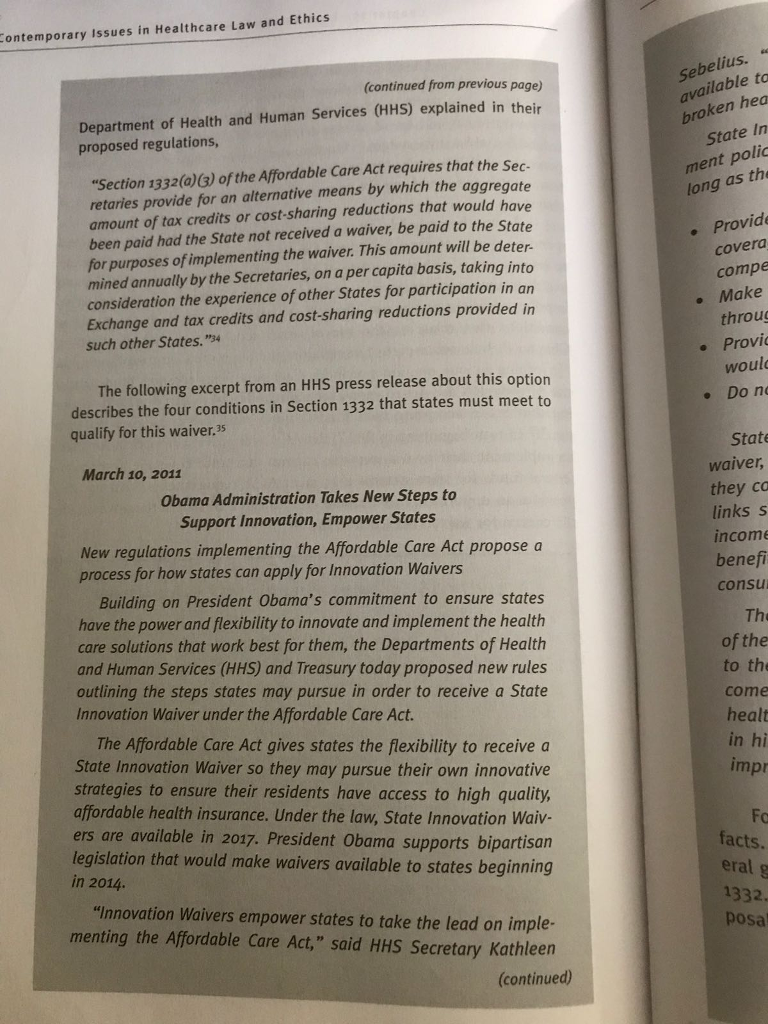
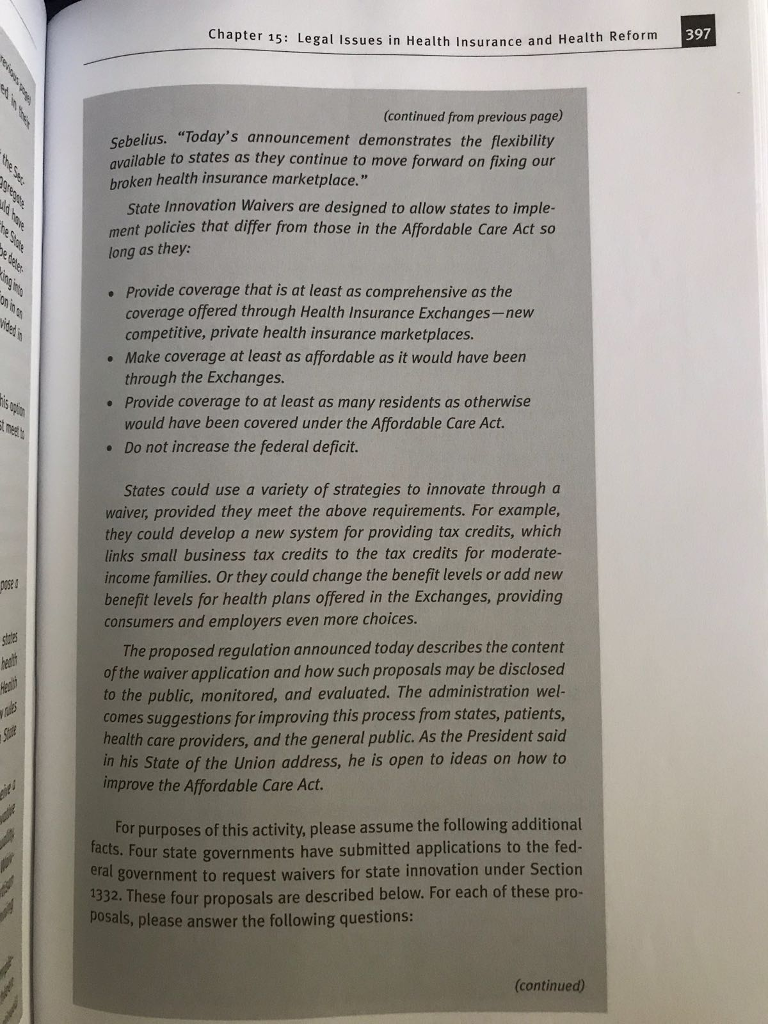
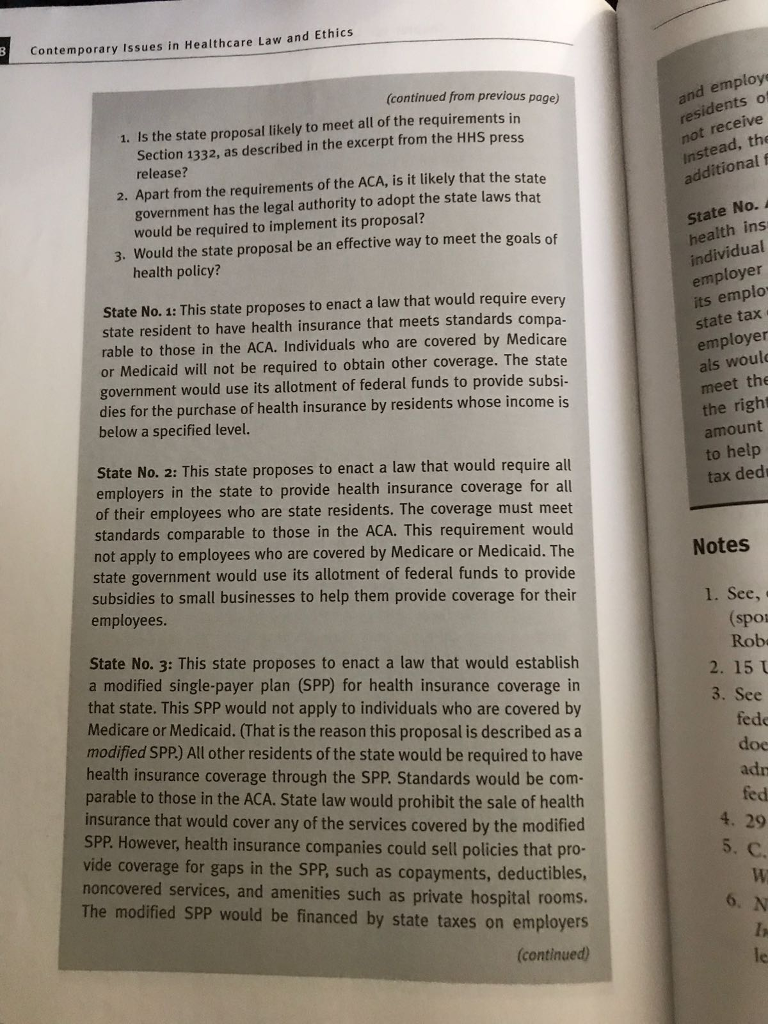
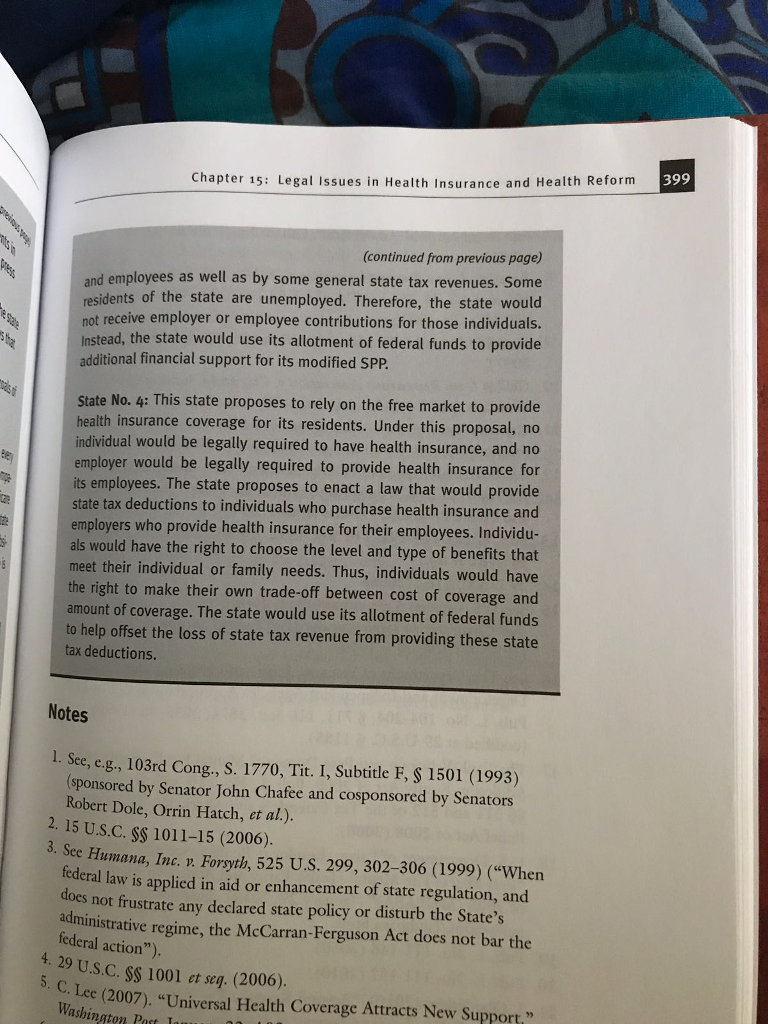
the Congress has ls to contribute to the basis, Congress would have the lealth insurance system for all residents of equire all individuals to pay taxes in support of that another possible alternative, Congres system else ower to provide federal funding to those states that are willing an individual mandate or adopt other reforms that would expand insurance coverage in a particular state. Congress has the power to tions on the use of specific federal funds, but it may not impose that relate to the use of other federal funds, as discussed in r 8. In another part of its opinion, the Supreme Court explained that s could use its conditional en al in our opinion precludes Congress from offering funds und [n]othing the Affordable Care Act to expand the availability of Hh er health care, and requir ing that States accepting such funds comply with the conditions on their use."32 In fact, beginning in 2017, the ACA will provide an option for states to implement their own systems to expand insurance coverage and receive ederal funds for state systems that meet ACA requirements. Activity 15.1 provides an opportunity to evaluate various types of state alternatives under the criteria for waivers set forth in the ACA. ACTIVITY 15.1: WAIVERS FOR STATE INNOVATION The Affordable Care Act (ACA) provides at Section 1332 that a state may opt out of the ACA's system for expanding health insurance coverage, provided the state adopts its own system to achieve universal cover- age,3 This is called a "waiver for state innovation." States have the option of applying to the federal government for a five-year waiver of particular ACA requirements. According to the ACA, this option is avail able as of 2017, but some members of Congress have discussed the possibility of advancing that date rovide at the unding to that state in an amount that is comparable to wh tederal government would have provided for residents of that state in a state receives a waiver, the federal government will p (continued) x credits under the ACA. As the Department of the Th the Congress has ls to contribute to the basis, Congress would have the lealth insurance system for all residents of equire all individuals to pay taxes in support of that another possible alternative, Congres system else ower to provide federal funding to those states that are willing an individual mandate or adopt other reforms that would expand insurance coverage in a particular state. Congress has the power to tions on the use of specific federal funds, but it may not impose that relate to the use of other federal funds, as discussed in r 8. In another part of its opinion, the Supreme Court explained that s could use its conditional en al in our opinion precludes Congress from offering funds und [n]othing the Affordable Care Act to expand the availability of Hh er health care, and requir ing that States accepting such funds comply with the conditions on their use."32 In fact, beginning in 2017, the ACA will provide an option for states to implement their own systems to expand insurance coverage and receive ederal funds for state systems that meet ACA requirements. Activity 15.1 provides an opportunity to evaluate various types of state alternatives under the criteria for waivers set forth in the ACA. ACTIVITY 15.1: WAIVERS FOR STATE INNOVATION The Affordable Care Act (ACA) provides at Section 1332 that a state may opt out of the ACA's system for expanding health insurance coverage, provided the state adopts its own system to achieve universal cover- age,3 This is called a "waiver for state innovation." States have the option of applying to the federal government for a five-year waiver of particular ACA requirements. According to the ACA, this option is avail able as of 2017, but some members of Congress have discussed the possibility of advancing that date rovide at the unding to that state in an amount that is comparable to wh tederal government would have provided for residents of that state in a state receives a waiver, the federal government will p (continued) x credits under the ACA. As the Department of the Th











